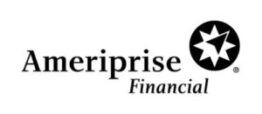
Andre Mitchell, a registered rep from MetLife Securities, Inc., was charged by the Financial Industry Regulatory Authority in a Complaint alleging that Mitchell misappropriated monies provided to him by an insurance customer. Department of Enforcement v. Andre Mitchell, No. 2013035618602 (Apr. 20, 2015).
According to the Complaint, Mitchell was being investigated by FINRA after his employer, MetLife, had filed an amended Form U5 after Mitchell’s termination stating that a customer alleged that the money Mitchell was provided for premium payments on the customer’s insurance policy was never applied.
FINRA’s Enforcement division, pursuant to Rule 8210, requested that Mitchell provide testimony, information, and documents. Mitchell had reportedly failed to answer multiple requests, prompting FINRA to charge him with violating Rules 8210 and 2010.
FINRA registered representatives like Mitchell who do not cooperate with FINRA’s investigations often face a permanent bar from practicing in the securities industry as such lack of cooperation violates FINRA’s Rule 8210 – requiring that no member or person shall fail to provide information or testimony or permit an inspection and copying of books, records, or accounts pursuant to the rule. FINRA typically accompanies a Rule 8210 violation with a Rule 2010 violation when individuals, according to FINRA, do not appear to observe high standards for commercial honor and just and equitable principles of trade.
Mitchell was also charged with conversion of customer funds in violation of Rule 2010. Specifically, the Financial Industry Regulatory Authority alleged that Mitchell was provided the $658 from the client for purposes of paying insurance premiums, that Mitchell knew what the funds were for and that the client was trusting him, that Mitchell did not pay the premiums, and that Mitchell instead used the money for personal use without the client’s authority or permission, which in turn caused the client’s policy to lapse.
Mitchell reportedly became affiliated with another firm, MML Investors Services, LLC, in April, 2013 where he acted in the capacity of a registered representative. However, Mitchell was discharged on March, 2014, after his firm alleged that Mitchell was terminated in connection with a FINRA inquiry as well as lacking requisite production to warrant heightened supervision.
Firms and individuals, not surprisingly, are prohibited from unauthorized use of customer funds, borrowing of a customer’s securities or funds, forgery, non-disclosures or misstatements of material facts, and various deceptions and manipulations. Such conduct can also be found to violate criminal and other civil laws, and be subject to sanction from the federal and state government bodies.
Securities brokerage firms have a duty to supervise their brokers and the sales practices of their brokers, and to review customer statements for, among other things, evidence of suitability, unauthorized trading, or excessive activity.
Guiliano Law Group
If you have been the victim of securities fraud and you have a complaint, you should consult with an attorney. The practice of Nicholas J. Guiliano, Esquire, and The Guiliano Law Group, P.C., is limited to the representation of investors in claims for fraud in connection with the sale of securities, the sale or recommendation of excessively risky or unsuitable securities, breach of fiduciary duty, and the failure to supervise. We accept representation on a contingent fee basis, meaning there is no cost unless we make a recovery for you, and there is never any charge for a consultation or an evaluation of your claim. For more information contact us at (877) SEC-ATTY.








